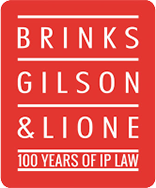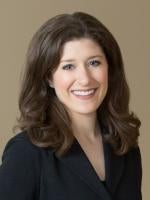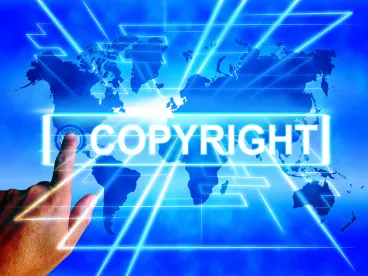Expert, E-discovery, and jury consultant expenses not recoverable, among other expenses
On March 4, 2019, the U.S. Supreme Court determined that cost awards in copyright cases are limited to the six categories of recoverable costs identified in the general cost statute, codified at 28 U.S.C. §§1821 and 1920. Accordingly, the Court eliminated $12.8 million from a District Court cost award, and reversed and remanded the issue to the Ninth Circuit for further proceedings consistent with the opinion.
In settling a split of authority in the federal appellate courts on the ramifications of whether “full costs” in the copyright statute broadens the categories of recoverable costs to a prevailing party, Justice Kavanaugh wrote the opinion for the unanimous Court in Rimini Street, Inc. v Oracle USA, Inc., No. 17-1625, holding: “The term ‘full’ is a term of quantity or amount; it does not expand the categories or kinds of expenses that may be awarded as ‘costs’ under the general costs statute. In copyright cases, [17 U.S.C.] §505’s authorization for the award of ‘full costs’ therefore covers only the six categories specified in the general costs statute, codified at §§1821 and 1920." Slip Op. at 1.
The dispute between software database businesses Oracle USA, Inc. (“Oracle”) and Rimini Street, Inc. (“Rimini Street”) first arose in 2010 when Oracle filed suit in the District Court for the District of Nevada under the Copyright Act claiming that Rimini Street downloaded Oracle’s copyrighted materials without a license. The District Court awarded Oracle close to $20 million in costs as part of a $124 million judgment after a jury found that Rimini Street copied Oracle’s software and infringed 93 Oracle copyrights.
Rimini Street appealed to the Ninth Circuit on the merits, and argued that $12.8 million of the costs awarded were non-taxable costs under federal law because they involved expert witness fees, e-discovery expenses, and jury consultant expenses. Rimini Street essentially argued that the general cost statutes, 28 U.S.C. §§ 1920 and 1821 (implemented through Federal Rule of Civil Procedure 54), limit costs awards to six categories of costs that may be awarded to the prevailing party: (1) fees of the clerk and marshal; (2) fees for printed or electronically recorded transcripts; (3) fees and disbursements for printing and witnesses; (4) fees for exemplification and costs of making copies of materials; (5) docket fees; and (6) compensation of court-appointed experts, compensation of interpreters, and salaries, fees, expenses and costs of special interpretation services. Oracle responded that the district court’s costs award was well grounded in the Copyright Act under 17 U.S.C. §505, which provides that “the court in its discretion may allow the recovery of full costs by or against any party.”
The Ninth Circuit affirmed on most of the costs awarded to Oracle, including expenses for expert witnesses, e-discovery consultants, and jury consultants that totaled over $12 million. Despite the Ninth Circuit consistently permitting costs awards like these, other circuits such as the Eight and Eleventh Circuits, have limited copyright cost awards to the taxable cost categories specified by the cost statutes.
In reversing the Ninth Circuit, the Supreme Court made clear that “[s]ections 1821 and 1920 create a default rule and establish a clear baseline against which Congress may legislate.” Id. at 4. In response to Oracle’s argument based on the Copyright Act, the Court found it noteworthy that “the same Congress that enacted amendments to the Copyright Act in 1976 enacted several other statutes that expressly authorized awards of expert witness fees.” Id. From a textual standpoint, the Copyright Act failed to specify any additional category of costs beyond the general costs statute, and so the Court concluded that “absent such express authority, courts may not award litigation expenses that are not specified in §§1821 and 1920.” Id. “‘Full’ is a term of quantity or amount. It is an adjective that means the complete measure of the noun it modifies.” Id. at 6. In response to Oracle’s arguments founded on the genesis of the current Copyright Act’s cost provision, the Court found the phrase “full costs” an anachronism, carried along by numerous amendments to the copyright statute. Id. at 10-11.
Accordingly, and as for the parties in the case, the Court ruled:
“[T]he Copyright Act does not explicitly authorize the award of litigation expenses beyond the six categories specified in §§1821 and 1920. And §§1821 and 1920 in turn do not authorize an award for expenses such as expert witness fees, e-discovery expenses, and jury consultant fees, which were expenses encompassed by the District Court’s $12.8 million award to Oracle here.” Id. at 6.
Takeaways
Until such time as a legislative fix is provided, the recovery of expert witness fees, jury consultant expenses, and electronic discovery expenses as taxable costs will not be available to copyright litigants under 17 U.S.C. §505. Accordingly, the Supreme Court’s ruling in this case will influence copyright litigants’ future decision-making, including whether, and for how long, they should pursue copyright claims, or defend against them, given the limited cost categories available for post-victory recovery by 28 U.S.C. §§1821 and 1920.




 />i
/>i

